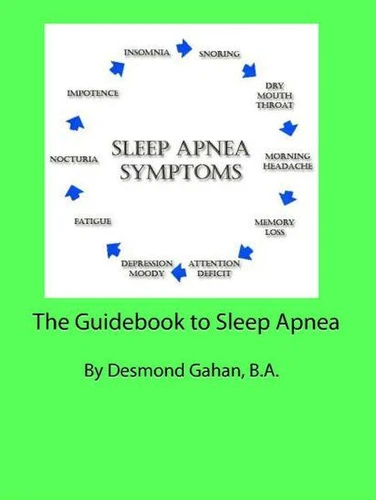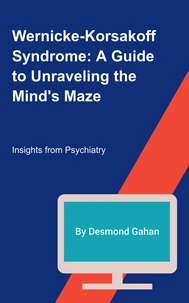The Guidebook to Sleep Apnea
Par :Formats :
Disponible dans votre compte client Decitre ou Furet du Nord dès validation de votre commande. Le format ePub est :
- Compatible avec une lecture sur My Vivlio (smartphone, tablette, ordinateur)
- Compatible avec une lecture sur liseuses Vivlio
- Pour les liseuses autres que Vivlio, vous devez utiliser le logiciel Adobe Digital Edition. Non compatible avec la lecture sur les liseuses Kindle, Remarkable et Sony
 , qui est-ce ?
, qui est-ce ?Notre partenaire de plateforme de lecture numérique où vous retrouverez l'ensemble de vos ebooks gratuitement
Pour en savoir plus sur nos ebooks, consultez notre aide en ligne ici
- FormatePub
- ISBN978-1-386-19054-7
- EAN9781386190547
- Date de parution01/08/2017
- Protection num.pas de protection
- Infos supplémentairesepub
- ÉditeurRelay Publishing
Résumé
Sleep Apnea is a condition when you temporarily stop breathing while you're sleeping or the breaths that you take are shallow. The temporary breathing can last from a few seconds and go on for a few minutes. These breathing interruptions can happen so many times an hour, even more than 30 times within that 60 minute time span. Afterwards, you would breathe normal again. It may be accompanied by loud snorting or choking.
This condition can interrupt you from getting a good night's sleep. It causes you not to get as much sleep as you need to. Sleep apnea causes you to be tired and sleepy during the day. This condition is not one of those that are easily diagnosed. Also it is usually not detected during a regular exam with your physician. Because it happens while you are sleeping, you probably would not know that you had it unless someone notice an unusual pattern in your sleeping.
The way that you may find out about it is if someone notices it while you're sleep. Even then, they probably won't know that you may have sleep apnea. Millions of adults are suffering from sleep apnea and don't know it. The majority of them are overweight or obese. Men suffer from this condition more than women. The older a person is, the more likely they can inherit this condition. With women, they can develop sleep apnea in the post-menopausal stage of their life.
More minority groups, such as African-Americans, Hispanics and Pacific Islanders develop sleep apnea more than other ethnic groups. It can also be inherited from a family member. If you have small airways in your throat, mouth or nose, you are more likely to have this condition. Young children that have larger than normal tonsil tissues can also develop sleep apnea. You can also be at risk for sleep apnea if you:.
Smoke. Have high blood pressure. Potential for having a stroke. Heart Failure
This condition can interrupt you from getting a good night's sleep. It causes you not to get as much sleep as you need to. Sleep apnea causes you to be tired and sleepy during the day. This condition is not one of those that are easily diagnosed. Also it is usually not detected during a regular exam with your physician. Because it happens while you are sleeping, you probably would not know that you had it unless someone notice an unusual pattern in your sleeping.
The way that you may find out about it is if someone notices it while you're sleep. Even then, they probably won't know that you may have sleep apnea. Millions of adults are suffering from sleep apnea and don't know it. The majority of them are overweight or obese. Men suffer from this condition more than women. The older a person is, the more likely they can inherit this condition. With women, they can develop sleep apnea in the post-menopausal stage of their life.
More minority groups, such as African-Americans, Hispanics and Pacific Islanders develop sleep apnea more than other ethnic groups. It can also be inherited from a family member. If you have small airways in your throat, mouth or nose, you are more likely to have this condition. Young children that have larger than normal tonsil tissues can also develop sleep apnea. You can also be at risk for sleep apnea if you:.
Smoke. Have high blood pressure. Potential for having a stroke. Heart Failure
Sleep Apnea is a condition when you temporarily stop breathing while you're sleeping or the breaths that you take are shallow. The temporary breathing can last from a few seconds and go on for a few minutes. These breathing interruptions can happen so many times an hour, even more than 30 times within that 60 minute time span. Afterwards, you would breathe normal again. It may be accompanied by loud snorting or choking.
This condition can interrupt you from getting a good night's sleep. It causes you not to get as much sleep as you need to. Sleep apnea causes you to be tired and sleepy during the day. This condition is not one of those that are easily diagnosed. Also it is usually not detected during a regular exam with your physician. Because it happens while you are sleeping, you probably would not know that you had it unless someone notice an unusual pattern in your sleeping.
The way that you may find out about it is if someone notices it while you're sleep. Even then, they probably won't know that you may have sleep apnea. Millions of adults are suffering from sleep apnea and don't know it. The majority of them are overweight or obese. Men suffer from this condition more than women. The older a person is, the more likely they can inherit this condition. With women, they can develop sleep apnea in the post-menopausal stage of their life.
More minority groups, such as African-Americans, Hispanics and Pacific Islanders develop sleep apnea more than other ethnic groups. It can also be inherited from a family member. If you have small airways in your throat, mouth or nose, you are more likely to have this condition. Young children that have larger than normal tonsil tissues can also develop sleep apnea. You can also be at risk for sleep apnea if you:.
Smoke. Have high blood pressure. Potential for having a stroke. Heart Failure
This condition can interrupt you from getting a good night's sleep. It causes you not to get as much sleep as you need to. Sleep apnea causes you to be tired and sleepy during the day. This condition is not one of those that are easily diagnosed. Also it is usually not detected during a regular exam with your physician. Because it happens while you are sleeping, you probably would not know that you had it unless someone notice an unusual pattern in your sleeping.
The way that you may find out about it is if someone notices it while you're sleep. Even then, they probably won't know that you may have sleep apnea. Millions of adults are suffering from sleep apnea and don't know it. The majority of them are overweight or obese. Men suffer from this condition more than women. The older a person is, the more likely they can inherit this condition. With women, they can develop sleep apnea in the post-menopausal stage of their life.
More minority groups, such as African-Americans, Hispanics and Pacific Islanders develop sleep apnea more than other ethnic groups. It can also be inherited from a family member. If you have small airways in your throat, mouth or nose, you are more likely to have this condition. Young children that have larger than normal tonsil tissues can also develop sleep apnea. You can also be at risk for sleep apnea if you:.
Smoke. Have high blood pressure. Potential for having a stroke. Heart Failure























